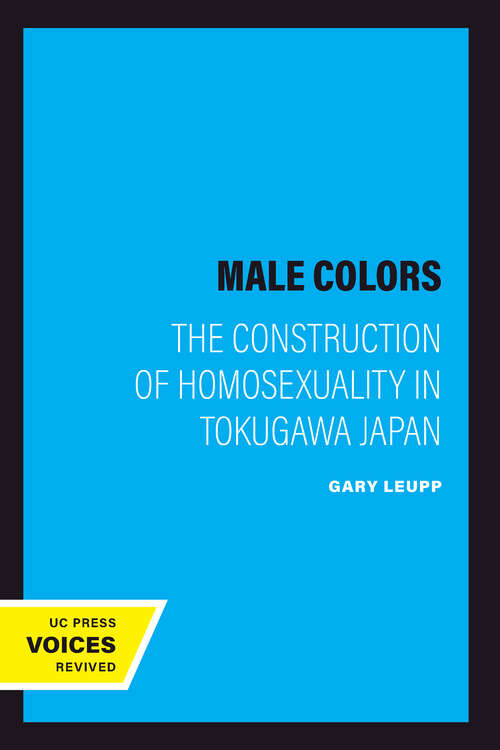Male Colors: The Construction of Homosexuality in Tokugawa Japan
By:
Sign Up Now!
Already a Member? Log In
You must be logged into Bookshare to access this title.
Learn about membership options,
or view our freely available titles.
- Synopsis
- Tokugawa Japan ranks with ancient Athens as a society that not only tolerated, but celebrated, male homosexual behavior. Few scholars have seriously studied the subject, and until now none have satisfactorily explained the origins of the tradition or elucidated how its conventions reflected class structure and gender roles. Gary P. Leupp fills the gap with a dynamic examination of the origins and nature of the tradition. Based on a wealth of literary and historical documentation, this study places Tokugawa homosexuality in a global context, exploring its implications for contemporary debates on the historical construction of sexual desire.Combing through popular fiction, law codes, religious works, medical treatises, biographical material, and artistic treatments, Leupp traces the origins of pre-Tokugawa homosexual traditions among monks and samurai, then describes the emergence of homosexual practices among commoners in Tokugawa cities. He argues that it was "nurture" rather than "nature" that accounted for such conspicuous male/male sexuality and that bisexuality was more prevalent than homosexuality. Detailed, thorough, and very readable, this study is the first in English or Japanese to address so comprehensively one of the most complex and intriguing aspects of Japanese history.
- Copyright:
- 1995
Book Details
- Book Quality:
- Publisher Quality
- Book Size:
- 317 Pages
- ISBN-13:
- 9780520919198
- Related ISBNs:
- 9780520209008
- Publisher:
- University of California Press
- Date of Addition:
- 04/28/23
- Copyrighted By:
- by
- Adult content:
- No
- Language:
- English
- Has Image Descriptions:
- No
- Categories:
- History, Nonfiction, Social Studies
- Submitted By:
- Bookshare Staff
- Usage Restrictions:
- This is a copyrighted book.
